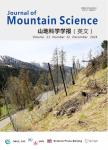Farmers' perceptions of and adaptations to drought in Herat Province, Afghanistan
Farmers' perceptions of and adaptations to drought in Herat Province, Afghanistan作者机构:Irrigation Technology Research Laboratory Department of Irrigation Engineering Faculty of Engineering at Kamphaeng Saen Kasetsart University Institute of International Rivers and Eco-security Yunnan University
出 版 物:《Journal of Mountain Science》 (山地科学学报(英文))
年 卷 期:2018年第15卷第8期
页 面:1741-1756页
核心收录:
学科分类:09[农学]
基 金:The financial support provided by the Kasetsart University
主 题:Adaptation strategies Perception Agriculture Drought impacts Water conflict
摘 要:Drought is a significant natural hazard in Herat Province, Afghanistan. The objective of this study was to explore farmers perceptions of the drought s prevalence and characteristics, its socioeconomic and environmental impacts, their strategies for coping with and mitigating it, and types of conflicts and resolution mechanisms. A questionnaire was completed by 147 farming households. The results indicate that farmers perceptions regarding drought are in line with the results obtained using the precipitation data. Even though the respondents have religious belief in interpreting the weather related issues, they also perceived drought as the climatic and environmental factors such as increased temperature, decreased precipitation, and other factors like war, financial weakness, deforestation, over-exploitation of groundwater, lack of electricity supply etc. The results show that drought has had serious economic impacts, including loss of employment and reduction in crop yield and livestock production, which have reduced farmers livelihood options and weakened their financial situation. Social impacts have included migration, a sense of hopelessness and loss, conflicts over water, health problems, impacts on the schooling of children, malnutrition, and limits to food options. Significant environmental impacts such as an increase in temperature, pasture and forest degradation, deterioration of water quality, damage to fish and wildlife habitats, and groundwater depletion were also reported. Farmers used local techniques to adapt to drought and lessen its effects. Farmers perceived irrigation water to be a major source of conflict. Local elders, water-user associations, and formal courts were reported to be the most successful conflict resolution methods. It is expected that the results of this study will support policy makers within government and development agencies in Afghanistan to develop future drought adaptation policies.



